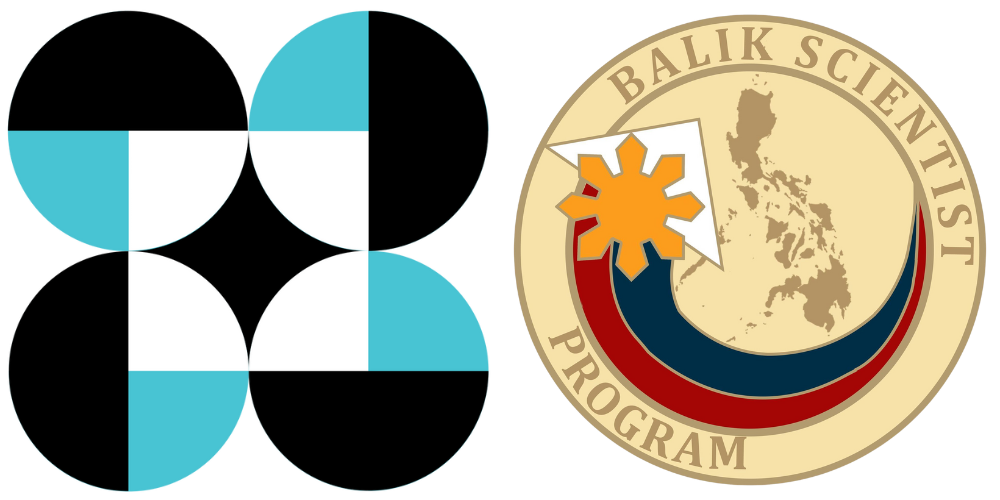As part of the Department of Science and Technology’s annual National Science and Technology Week (NSTW) for 2020, the Balik Scientist Program (BSP) conducted an online forum with the theme “Balik Scientists: Kabalikat sa Agham at Teknolohiya sa Pagharap ng Hamon sa Kalusugan, Kabuhayan, Kaayusan at Kinabukasan” last 17 November 2020 through zoom conferencing, broadcasted live through BSP’s facebook page.
The webinar commenced with Undersecretary for Research and Development Rowena Guevara’s welcome remarks. She emphasized how the program adopted alternative strategies and engagements during the pandemic. Undersecretary Guevera also acknowledged the Balik Scientist Awardees who volunteered in sharing their knowledge to combat the pandemic. Finally, she hoped for a productive webinar.
Following Undersecretary Guevera’s welcome remarks was DOST Secretary Fortunato Dela Peña giving a brief history of the Balik Scientist Program – how it started in 1975 up until present.
Subsequently, three host institutions of the program delivered their testimonials emphasizing how the Balik Scientist Awardees made significant contributions within their organization. Dr. Laura David, director of the University of the Philippines – Marine Science Institute (UP-MSI) manifested that Balik Scientists helped in identifying gaps and how to address them. She mentioned that the Awardees focused on mentoring, publishing, training, and development of facility and database. On the other hand, Dr. Carlo Arcilla from the UP Philippine Nuclear Research Institute (UP-PNRI) mentioned that nuclear medicine can help the late diagnosis of cancer for the Filipino. This is being developed through the help of the awardees in their institution. Lastly, Dr. Eugenio Guhao from University of Mindanao demonstrated the engagements of the Balik Scientists in their university. Some of the engagements he mentioned are infrastructure programs, activated charcoal, characterization of nanomaterials, as well as trainings and workshops for Chemical Engineering students.
The highlight of the webinar was the three parallel sessions that discussed the New Normal for Education, New Normal for Health, and New Normal for Livelihood. In every session, five Balik Scientists conversed about the different adaptation engagements for each sector.
The New Normal for Education was facilitated by Balik Scientist Dr. Ryan Arevalo. The session started with Dr. Maryrose Salvador’s initiatives to education such as the Barrio Agham, Hackathon for Science Education, and Technofair. Next is Dr. Lawrence Limjuco’s discussion on the promotion of Material Science and Engineering amidst the isolation and remote learning through international collaborations. Dr. Jayvee Saco discussed how social media help the education sector through IEC Materials, video series, and online lecture series. Dr. Nikki Heherson Dagamac summarized three techniques adopted during the pandemic which are software utilization, virtual and home experiments, and modeling simulations. Last for this session was Dr. Gerard Dumancas that tackled strategies in mitigating COVID-19 in the education sector.
On the New Normal for Health was moderated by Balik Scientist Dr. Arnulfo Rosario. Dr. Thomas Neil Pascual, Dr. Romulo De Castro, Dr. Jhalique Jane Fojas, Dr. Fidela L. Moreno, and Dr. Joselito Quirino shared their knowledge towards the innovations for the sector. Some of the highlights of the discussion was how medical records were digitalized, effective data management, affordable medicines for the Filipino, and SARS Cov-2 diagnostic through microfluids.
New Normal for Livelihood was the last session facilitated by Balik Scientist Awardee Dr. Venecio Ultra. The first speaker for livelihood was Dr. Anthony Halog who tackled circular economy and bioeconomy for sustainable livelihood. Dr. Halog discussed potential products that can be derived from biomass. Dr. James Li discussed the impact center model. Dr. Roleda then shared his initiatives in enhancing seaweed productivity and novel strain selection to enhance livelihood outcomes for small-scale fisherfolk. Dr. Divina Amalin, on the other hand, manifested about how to sustainably develop and efficiently manage cacao. She also mentioned the development of extension materials such as modules, and field guide to insects, pests, and diseases. Lastly, Dr. Narceo Bajet presented about enhancing sweet potato productivity through the use of virus-free planting materials.
The Executive Director of DOST-Philippine Council for Industry, Energy, and Emerging Technology (DOST-PCIEERD), Dr. Enrico Paringit marked the webinar to its closing remark. He thanked everyone for their lively participation. Finally, Dr. Paringit hopes that online initiatives such as the annual convention will encourage more Filipino Scientists in serving the country through the program.
